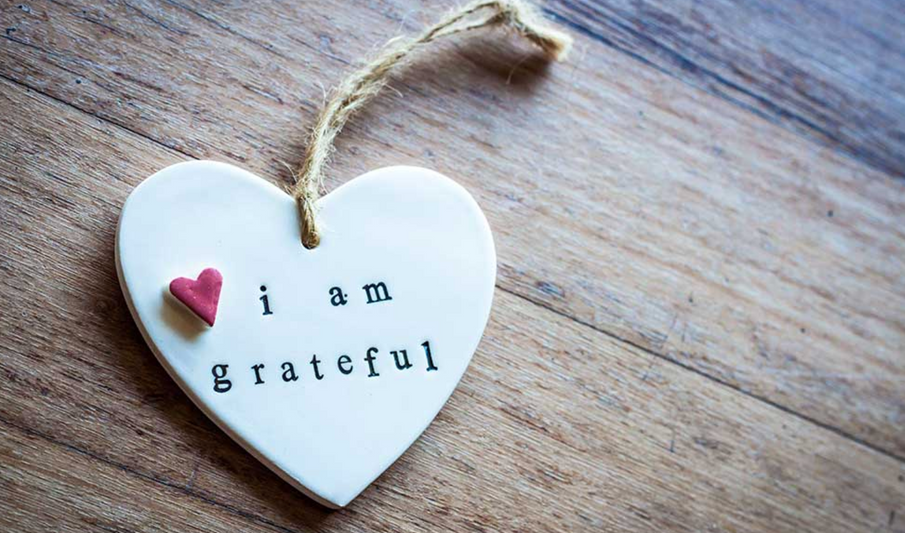How Journaling Can Help You Break Bad Habits
Written By: Matt Mignona

Our day-to-day lives are formed by habit. For better or worse—and it's usually a mix of both—our good and bad habits determine our productivity, our health, and even our happiness.
In Jeff Olson's book The Slight Edge, he talks about how our daily habits are putting us on a slight edge toward our goals or away from them. These are the little actions in life that are easy to do and easy not to do: preparing a healthy meal versus preparing an unhealthy one, flossing versus not flossing, finishing the project versus putting it off until tomorrow. From today until tomorrow, you don't see a negative or positive effect from these actions. You won't notice the effect until weeks or months later—after that habit has been in play for the long term.
Bad habits are those that take us further away from our goals. These little actions add up over time to cause physical, mental, or professional harm.
Merriam-Webster offers a few definitions for "habit," and these two, in particular, offer some interesting insight:
"...an acquired mode of behavior that has become nearly or completely involuntary;
"...a behavior pattern acquired by frequent repetition or physiologic exposure that shows itself in regularity or increased facility of performance."
The first definition shows the power of habit, while the second one gives us hope and opportunity: by intentionally developing habits, they become a force all their own, something we can do without thinking about it.
Bad Habits That Are Impacting Your Health and Happiness
We all know that failing to brush your teeth is a bad habit, both for the sake of the people you have to talk to all day and for the health of your teeth. It's a classic example of the power of habit. But what other sneaky little bad habits are you probably engaging in that aren't serving you in a positive way? Take a close look at your daily life and see if you can spot any of the following:
- Not Drinking Enough Water: Inadequate hydration can impair memory and concentration, increase anxiety and fatigue, cause headaches, and may impact your ability to lose weight.
- Complaining: There are several types of complaining, and while the right kind can lead to positive actions and results, more often our complaining is no more than useless griping about relatively unimportant events and situations. This can dampen your happiness and may even predispose your brain to think in this way.
- Mindless Snacking: In the car, at the computer, in front of the television—how much extra sugar, fat, and calories do you consume on a daily basis without even realizing it and barely enjoying it?
- Endless Scrolling: Getting caught up in a social media scrolling or internet browsing can waste hours of your day. How often do you check your email and Facebook?
- Multitasking: You might do it all, but you won't do it all well. Multitasking makes projects take longer, increases the chance of making mistakes, and actually drains our energy.
- Comparing: Social media today encourages it, but comparing yourself to others can make you feel jealous, insecure, unmotivated, and defeated—or, just as bad, smug and superior.
How Long Does It Take to Break a Bad Habit—or Develop a Good One?
I wish there were a clear-cut answer to this, but there's not. Research indicates widely varying time frames in which people are able to break or form habits. How long it takes depends on you.
This article offers insight into breaking bad habits from several psychologists and professionals. These are a few of the variables that may impact how long it takes you to make or break a habit:
- Commitment and Motivation: How badly do you want to change? Why are you making the change?
- Strategy: What is your plan for initiating and maintaining the change?
- Availability of Another Habit: This ties into strategy. Replacing a bad habit with a good one is easier than simply stopping the behavior. Could you replace drinking soda with drinking water? What other bad habits could you replace with something healthier?
- Situation: Sometimes, an event can inspire a sudden change in habit: "In extreme cases, the habit can be broken instantly, such as if you happen to become violently ill when you inhale cigarette smoke or nearly get hit by a bus when texting and walking."
You can't rely on (and truly, probably don't want) a sudden near-tragedy to inspire change in your life. Instead, you need to figure out the consequences of your habit, why you want to change, and how to plan for your success.
How You Can Break Your Bad Habits
The first step is awareness.
How many times have you multitasked or scrolled through Facebook without really realizing what you were doing? If I asked you how many minutes/hours you spent complaining every day, would you be able to offer an accurate guess?
This is only the beginning of where journaling can play a major role in helping you break a bad habit and develop a good one. With daily reflection, you can take note of your habits and how they impact your life.
Psychology Today offers a few tips for breaking bad habits:
- Be Specific About What You Want to Change: Write that change as a goal in your journal. Write down the action steps you can take that day to help you solidify the new habit or abandon the old one.
- Identify and Manage Triggers: Maybe you always complain when you're around certain people. Maybe others inspire you to share gossip. Maybe you always get an unhealthy treat at the drive-through when you drive down a certain street. Take note of when your bad habits occur and how you can change the situation to avoid feeling triggered.
- Create a Plan: Your journal can help you outline your plan for avoiding triggers and acting on new, desired behaviors.
- Be Persistent: Change takes time. Remember the slight edge, and that you want to keep moving up. It doesn't have to happen quickly. If you keep at it, you'll make the change. Record your feelings about the process and celebrate small successes. Keeping this in your journal gives you something to look back on when you're having a tough day.
- Get Support: Enlist others to help hold you accountable. If you're replacing a bad habit happy hour with a good habit trip to the gym, get a workout buddy who wants to make the same change and won't try to talk you into going back to the bar.
The Happier Mind Journal gives you a place to set goals and track your action toward them. It's a twice-daily reminder of what you're doing—and, most importantly, why. Get the good habit started by downloading some of our planner printables, like the One Week Health Challenge or the Best Month Ever worksheet. Use these to get acquainted with journaling and to supplement your Happier Mind Journal as you work to break the bad habits that are limiting your potential.




Leave A comment